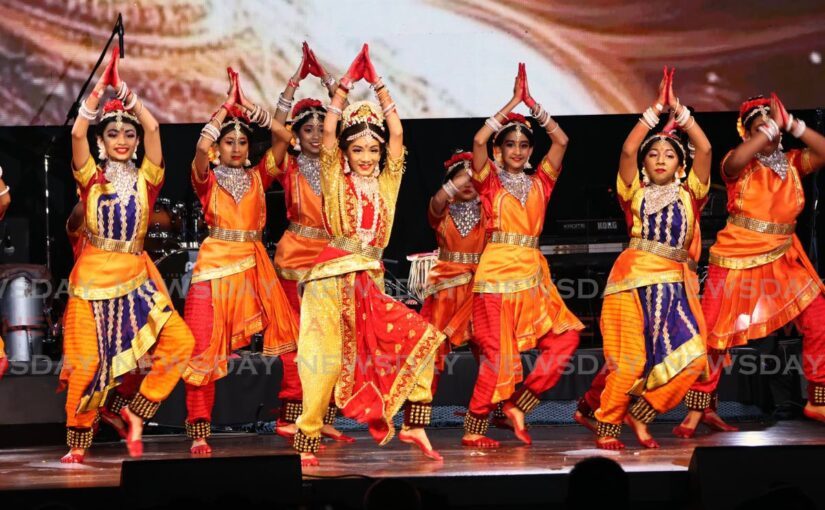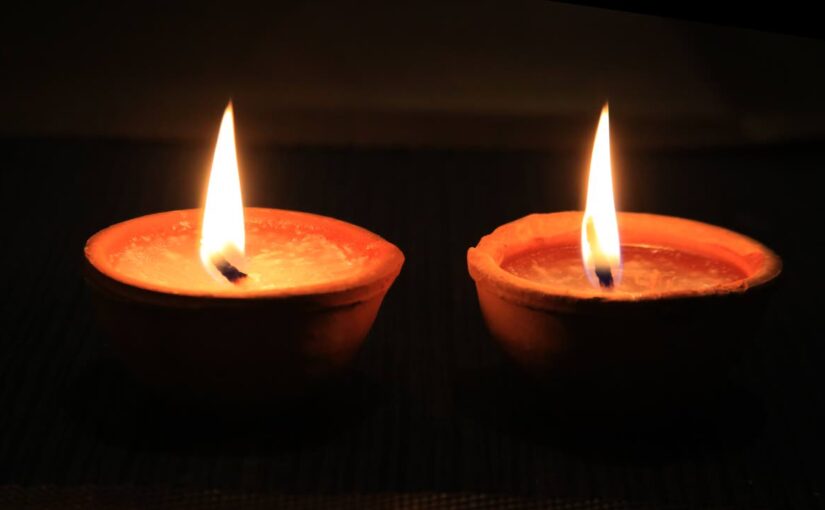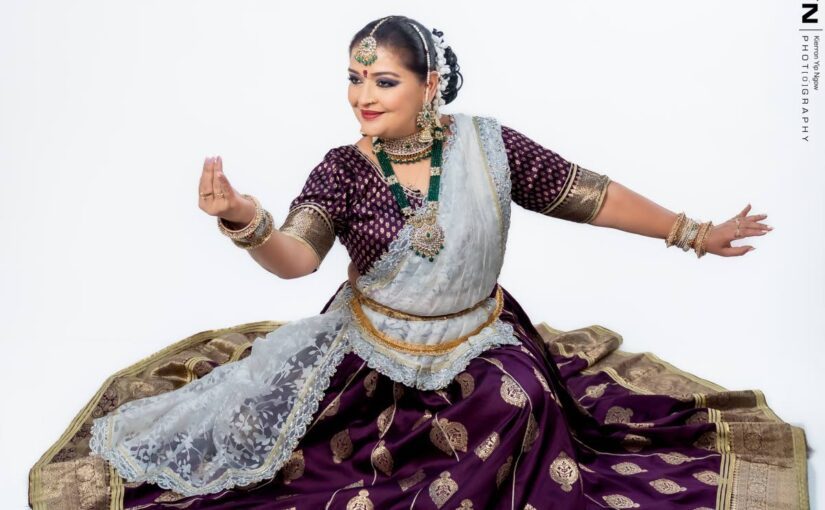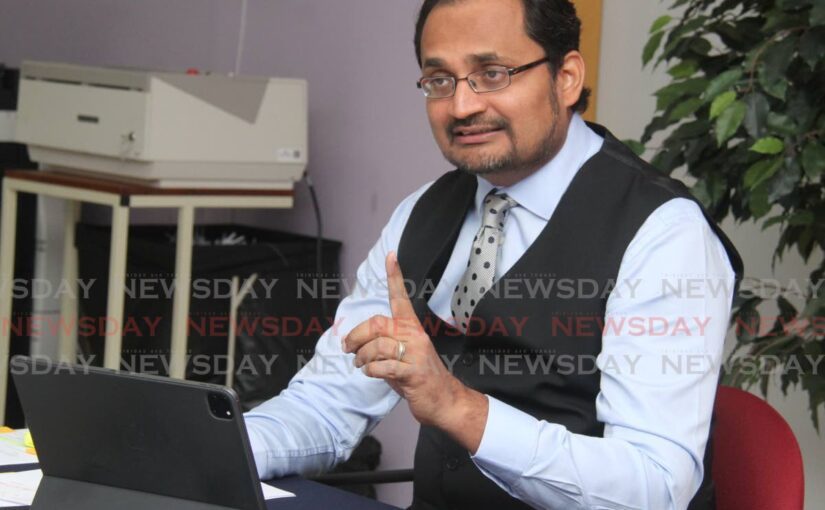THE EDITOR: TT celebrates Divali on October 31, a public holiday since 1966. Divali continues to generate national appeal from all sectors of the...
Vous n'êtes pas connecté
- English
- Français
- عربي
- Español
- Deutsch
- Português
- русский язык
- Català
- Italiano
- Nederlands, Vlaams
- Norsk
- فارسی
- বাংলা
- اردو
- Azərbaycan dili
- Bahasa Indonesia
- Հայերեն
- Ελληνικά
- Bosanski jezik
- українська мова
- Íslenska
- Türkmen, Түркмен
- Türkçe
- Shqip
- Eesti keel
- magyar
- Қазақ тілі
- Kalaallisut ; kalaallit oqaasii
- Lietuvių kalba
- Latviešu valoda
- македонски јазик
- Монгол
- Bahasa Melayu ; بهاس ملايو
- ဗမာစာ
- Slovenščina
- тоҷикӣ ; toğikī ; تاجیکی
- ไทย
- O'zbek ; Ўзбек ; أۇزبېك
- Tiếng Việt
- ភាសាខ្មែរ
- རྫོང་ཁ
- Soomaaliga ; af Soomaali
 Maroc - POPDIARIES.COM - A La Une - 10/Sep 04:43
Maroc - POPDIARIES.COM - A La Une - 10/Sep 04:43
Chastity: Key Principle in Indian Vedic Philosophy
In the Indian Vedic tradition, chastity, particularly before marriage, holds a profound and multifaceted significance that extends beyond mere physical restraint. Rooted in ancient texts and cultural practices, chastity is viewed not only as a moral virtue but also as a fundamental component of spiritual and personal development. The Vedic philosophy emphasizes the importance of chastity for several reasons. Firstly, it is believed that maintaining chastity before marriage helps preserve the individual's energy and vitality, which is seen as essential for spiritual growth and self-realization. According to Vedic teachings, sexual energy is a powerful force that, when properly channeled, can be directed towards personal and spiritual advancement. This perspective underscores the idea that pre-marital chastity aids in harnessing this energy for more elevated purposes rather than dissipating it in fleeting physical experiences. Moreover, the concept of chastity is closely linked with the idea of self-discipline and control over one’s desires. In Vedic thought, self-discipline is considered crucial for achieving higher states of consciousness and spiritual enlightenment. By practicing chastity, individuals cultivate a sense of self-control that extends beyond sexual behavior, influencing other areas of life such as thought patterns, emotional responses, and interpersonal relationships. This self-discipline is seen as a path to developing a deeper understanding of oneself and fostering a harmonious relationship with the divine. In addition to its spiritual and personal dimensions, chastity before marriage is also perceived as a means of maintaining societal harmony and familial integrity. The Vedic tradition places high value on the sanctity of marriage, viewing it as a sacred union that ideally occurs between individuals who have prepared themselves both spiritually and emotionally. Chastity before marriage is thus seen as a way to honor and respect the institution of marriage, ensuring that it is entered into with purity of intention and commitment. This perspective reinforces the belief that a stable and harmonious family life contributes to the overall well-being of society. Furthermore, in the context of Indian Vedic philosophy, chastity is often associated with the concept of "Dharma," which refers to righteousness and duty. Upholding chastity is seen as fulfilling one’s Dharma by adhering to the moral and ethical standards set forth in the Vedic texts. This adherence is believed to bring about personal and societal benefits, including the development of a strong moral character and the establishment of a just and orderly society. The Vedic texts themselves offer various guidelines and narratives that highlight the importance of chastity. Stories of revered sages and figures in these texts often emphasize the virtue of chastity and its role in attaining wisdom and spiritual enlightenment. These narratives serve as both instruction and inspiration, illustrating the transformative power of chastity and its alignment with higher spiritual goals. In conclusion, chastity before marriage, according to Indian Vedic philosophy, is a principle deeply intertwined with the pursuit of spiritual growth, self-discipline, and societal harmony. It represents a holistic approach to personal development and ethical living, reflecting the Vedic emphasis on aligning one’s actions with spiritual and moral ideals. By upholding this principle, individuals not only honor the sacredness of marriage but also contribute to their own spiritual journey and the well-being of the broader community. READ MORE - Become a Magnet for Love and Abundance: Proven Techniques for a Fulfilling Life
Articles similaires
The deya – a symbol of spiritual enlightenment, unity during Divali
BAVINA SOOKDEO As the festival of Divali draws near, deyas (earthen lamps) are being sold at puja stores, supermarkets and along the roadside as...
Cancer of School Indiscipline
“The undisciplined are slaves to moods, appetites and passions” – Stephen Covey ALL SOCIETAL institutions, both formal and informal, are...
Susan Mohip shares her journey as cultural ambassador
BAVINA SOOKDEO Susan Mohip is a name recognised far beyond Indian classical dance and culture. An embodiment of tradition, modernity, and ambition,...
The values of Divali
DINESH RAMBALLY THE THEME of this year’s Divali Nagar was "Grihastha Ashram," one of the stages in the life of Hindus. In Hinduism there are four...
A ‘Heroic’ Preference For Self-Destruction Is Taking Hold In Israel – OpEd
Centuries ago a boy was born. His parents understood that he had a remarkable fate before him which reflected the Will of the Great Shaman. His hair...
Record-breaking turnout for Melbourne’s Chhath Puja celebration
Chhath Puja is a significant Hindu Vedic festival, primarily celebrated in the Indian states of Bihar, Jharkhand, Uttar Pradesh, and parts of Madhya...
AI Tools: AITextImprover to improve texts and emails with AI
AITextImprover is a Chrome extension that leverages OpenAI's artificial intelligence (GPT-4) to enhance the quality of texts and emails.
Allah’s Relationships With Three Different Religious Communities – OpEd
For thousands of years before Prophet Abraham, Allah sent thousands of prophets to thousands of tribes and nations all over the earth, and not one...
It’s Unfortunate Engaging In Spiritual Obligations Is Seen As Distraction – Shettima
The Vice President, Kashim Shettima, has described the mindset of people that see spiritual obligations as distractions as unfortunate. Kashim...
Les derniers communiqués
-
Aucun élément




